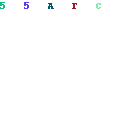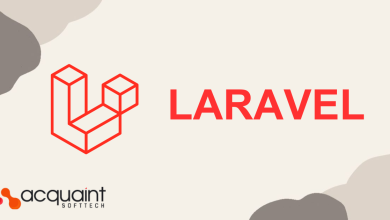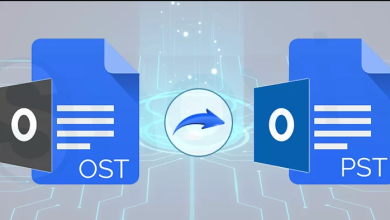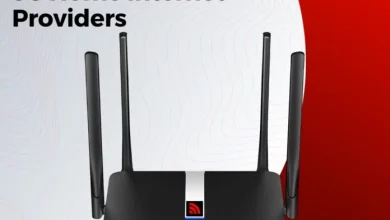NFT Game Development Unveiled: Crafting Virtual Realities with Real-World Value

Introduction
The world of gaming is undergoing a groundbreaking transformation with the advent of Non-Fungible Tokens (NFTs) and the Play-to-Earn (P2E) model. NFT Gaming Development is revolutionising the way gamers and developers interact with virtual assets and ecosystems. If you’re intrigued by the idea of creating your own NFT game or are simply curious about this burgeoning industry, you’re in the right place. In this comprehensive guide, we will explore the exciting realm of NFT game development, from concept to execution, and introduce you to the services and tools that can turn your vision into reality.
Understanding NFT Games
Before we delve into the specifics of NFT game development, let’s start with the basics. NFTs are unique digital assets that exist on a blockchain, providing ownership and provenance of digital items. In the context of gaming, NFTs are used to represent in-game items, characters, skins, or any other digital assets that can be bought, sold, or traded by players.
NFT games, or blockchain games, incorporate these NFTs into their gameplay and economy, allowing players to truly own and control their in-game assets. The concept of ownership, scarcity, and authenticity has given rise to the Play-to-Earn (P2E) model, where players can not only enjoy the game but also earn real-world value through trading or utilizing their NFTs.
Step 1: Idea Generation
Any successful game begins with a compelling idea, and NFT games are no exception. To kickstart your NFT game development journey, consider the following:
- Conceptualization: Develop a unique and engaging game concept that incorporates NFTs. Think about how these tokens can be used within the game’s ecosystem.
- Scarcity and Utility: Explore ways to make in-game assets scarce and useful, creating a demand for them within the gaming community.
- Player Incentives: Consider how players will be incentivized to own and utilize NFTs. Can they be used for enhancing gameplay, participating in special events, or trading?
Step 2: NFT Game Development Services
Creating an NFT game from scratch can be a complex task, and it often requires the expertise of specialized services and tools. Let’s explore the key services that can assist you in the development process:
Blockchain Integration
- Ethereum: Ethereum is one of the most popular blockchains for NFT games. It supports both the ERC-721 and ERC-1155 standards for NFTs. Ethereum’s robust infrastructure is widely used for creating NFT ecosystems.
- Binance Smart Chain (BSC): BSC is gaining traction due to its lower transaction fees and fast confirmation times. It’s a viable alternative to Ethereum for NFT game development.
Smart Contract Development
- Solidity: Solidity is the primary programming language for developing smart contracts on Ethereum. Understanding Solidity is essential for creating the logic that governs your NFTs and in-game assets.
- Smart Contract Auditing: To ensure the security of your smart contracts, consider professional auditing services that can identify vulnerabilities and provide recommendations.
NFT Minting and Management
- NFT Minting Platforms: Various platforms and tools allow you to mint NFTs. These platforms can help you create, manage, and distribute NFTs efficiently.
Game Development
- Game Engines: Choose a game engine like Unity or Unreal Engine to build your NFT game. These engines provide robust tools for creating immersive gameplay experiences.
- Game Design: Develop game mechanics that integrate NFTs seamlessly into the gameplay. Consider how NFTs can impact the player experience and in-game economy.
Marketplaces
- NFT Marketplaces: Integrate with NFT marketplaces like OpenSea, Rarible, or your custom marketplace for players to buy, sell, and trade NFTs.
- Liquidity and Trading: If your game includes a decentralised exchange, ensure it provides liquidity for players to trade NFTs.
User Wallets
- Wallet Integration: Integrate with popular crypto wallets like MetaMask or Trust Wallet, allowing players to store and manage their NFTs.
Community Building
- Social Media Management: Build an active community around your game on platforms like Discord, Telegram, and Twitter.
- Community Managers: Hire community managers to engage with players and address their concerns.
Step 3: Token Economy
The token economy is at the core of NFT games. It determines how tokens are distributed, earned, and used within the game. Here are some key aspects to consider:
- Token Distribution: Decide how tokens are initially distributed, whether through Initial NFT Offerings (INO) or other methods.
- In-Game Earnings: Create mechanisms for players to earn tokens within the game. This should reward both skill and dedication, not just monetary investment.
- Staking and Governance: Implement staking mechanisms, allowing players to lock up tokens for rewards, and introduce governance for player involvement in decision-making.
- Economical Balance: Maintain a balance between inflation and deflation to ensure that the token retains its value over time.
Step 4: Testing and Launch
Before releasing your NFT game to the public, thorough testing is essential. This includes technical testing to ensure the game functions smoothly and gameplay testing to identify and address balance or fairness issues. Consider launching a beta version to gather player feedback and make necessary improvements.
Step 5: Monetization
NFT game development provides multiple avenues for monetization:
- Transaction Fees: Earn a percentage of each in-game transaction or marketplace sale.
- NFT Sales: Create limited edition NFTs and sell them to players.
- Adoption Partnerships: Partner with other NFT games or platforms to cross-promote and generate additional revenue.
Step 6: Regulatory Compliance
Navigating the legal and regulatory aspects of NFT Gaming Platform Development is crucial. Consult with legal experts to ensure your game complies with local and international laws, especially regarding NFTs, virtual assets, and player data.
Step 7: Community and Marketing
Building a vibrant and engaged player community is vital for the success of your NFT game. Consider these strategies:
- Social Media Presence: Establish official social media channels for your game and interact with your audience regularly. Share updates, events, and community highlights.
- Discord and Telegram Communities: Create dedicated spaces for players to discuss the game, seek assistance, and share their experiences.
- In-Game Events: Host special in-game events and competitions with unique NFT rewards to maintain player engagement.
- Content Creation: Encourage players to create content related to your game, such as tutorials, reviews, and streams. This can help spread the word and attract new players.
- Marketing Campaigns: Plan and execute marketing campaigns to promote your game to a broader audience. Consider partnering with influencers and gaming communities for wider reach.
Conclusion
The rise of NFT games is a testament to the gaming industry’s evolution and its embrace of blockchain technology. Aspiring developers and entrepreneurs now have the opportunity to create immersive experiences where players truly own and earn from their in-game assets. This comprehensive guide has provided you with a roadmap to navigate the exciting world of NFT game development, from ideation to execution.
Remember that success in NFT game development requires a mix of creativity, technical know-how, and a deep understanding of blockchain and cryptocurrency dynamics. With the right idea and a dedicated team, you can take your first step toward building the next big NFT game. Embrace the potential of NFTs and P2E gaming, and embark on an exhilarating journey in this innovative and evolving industry. Good luck on your NFT game development adventure!



